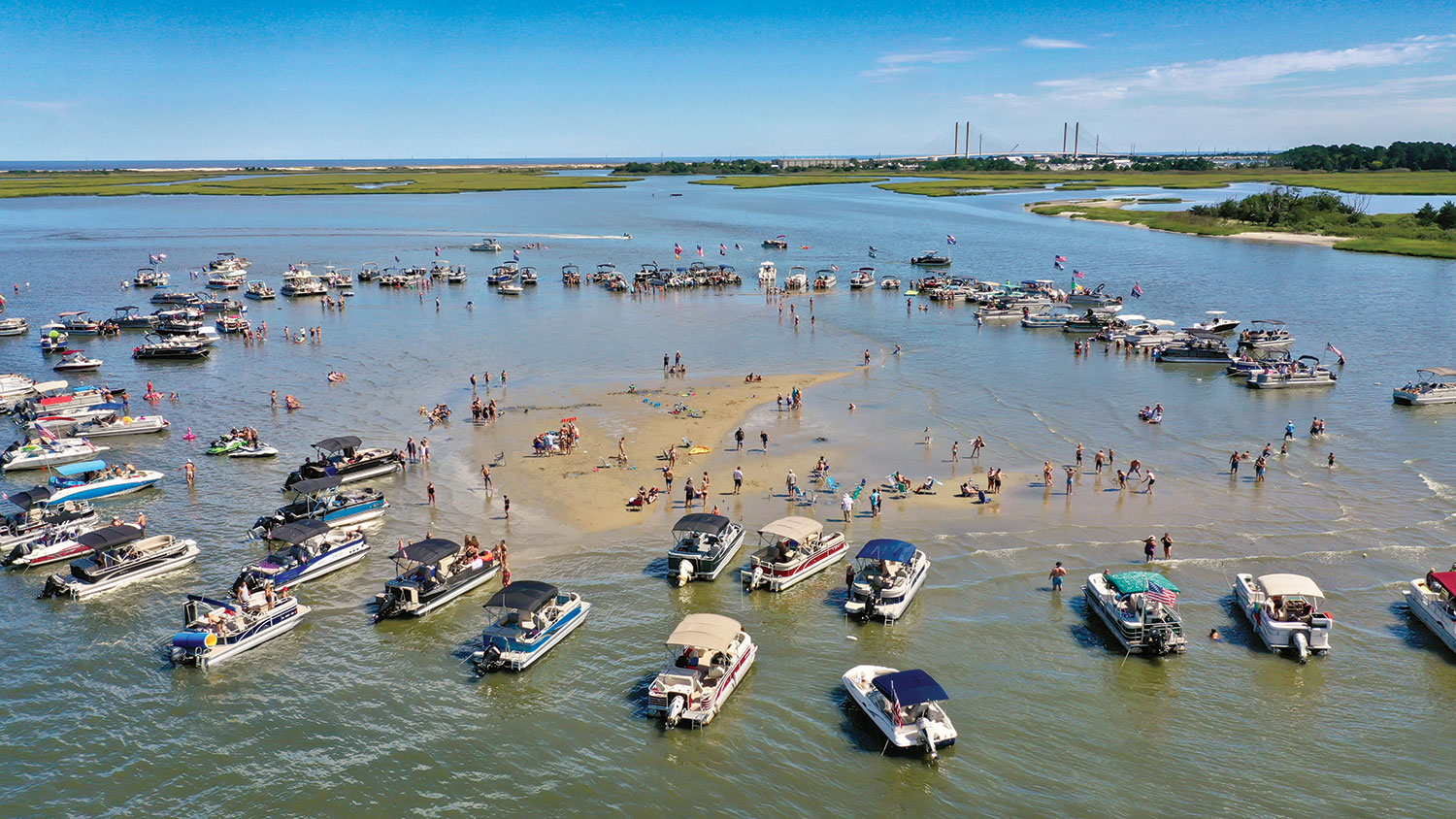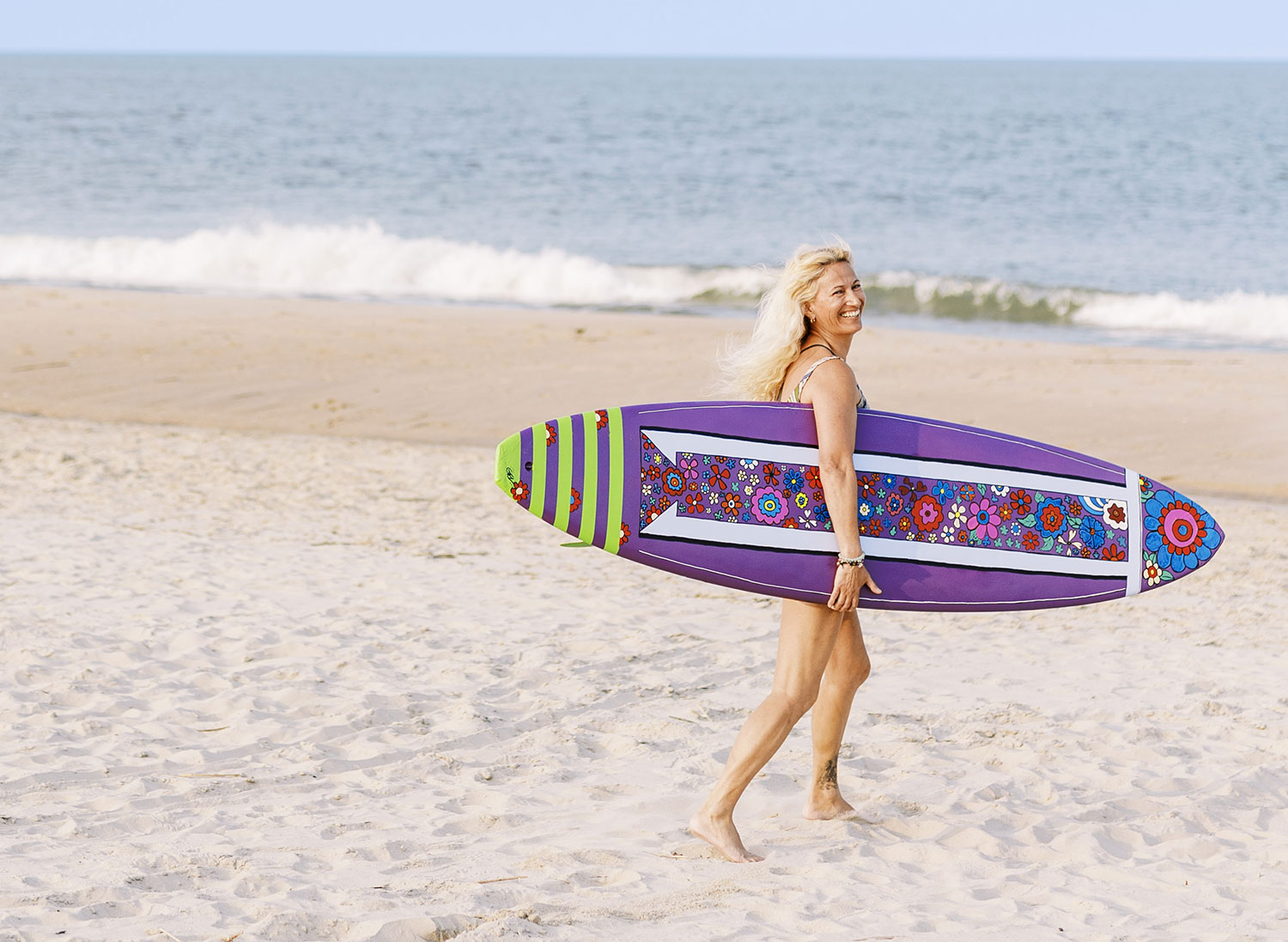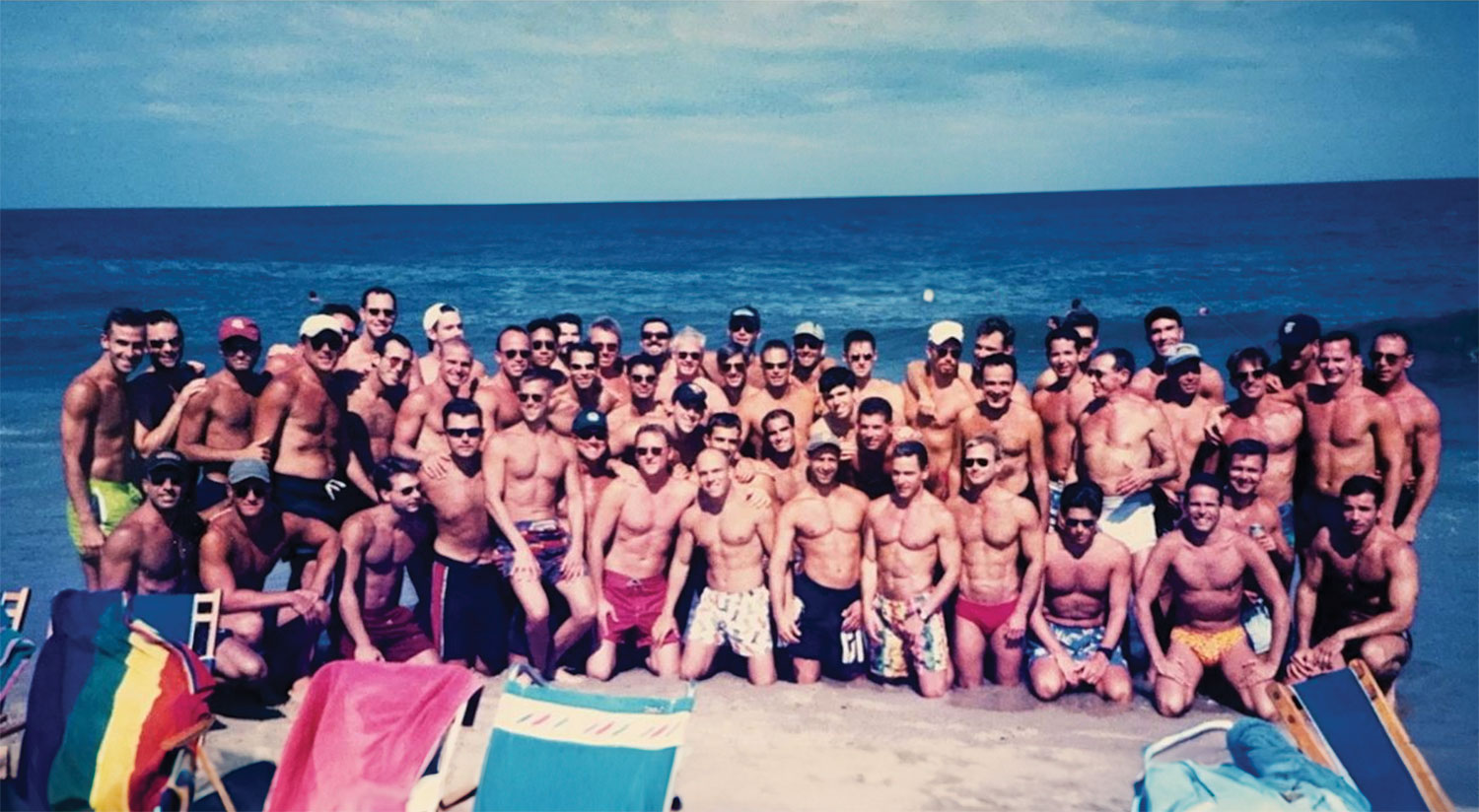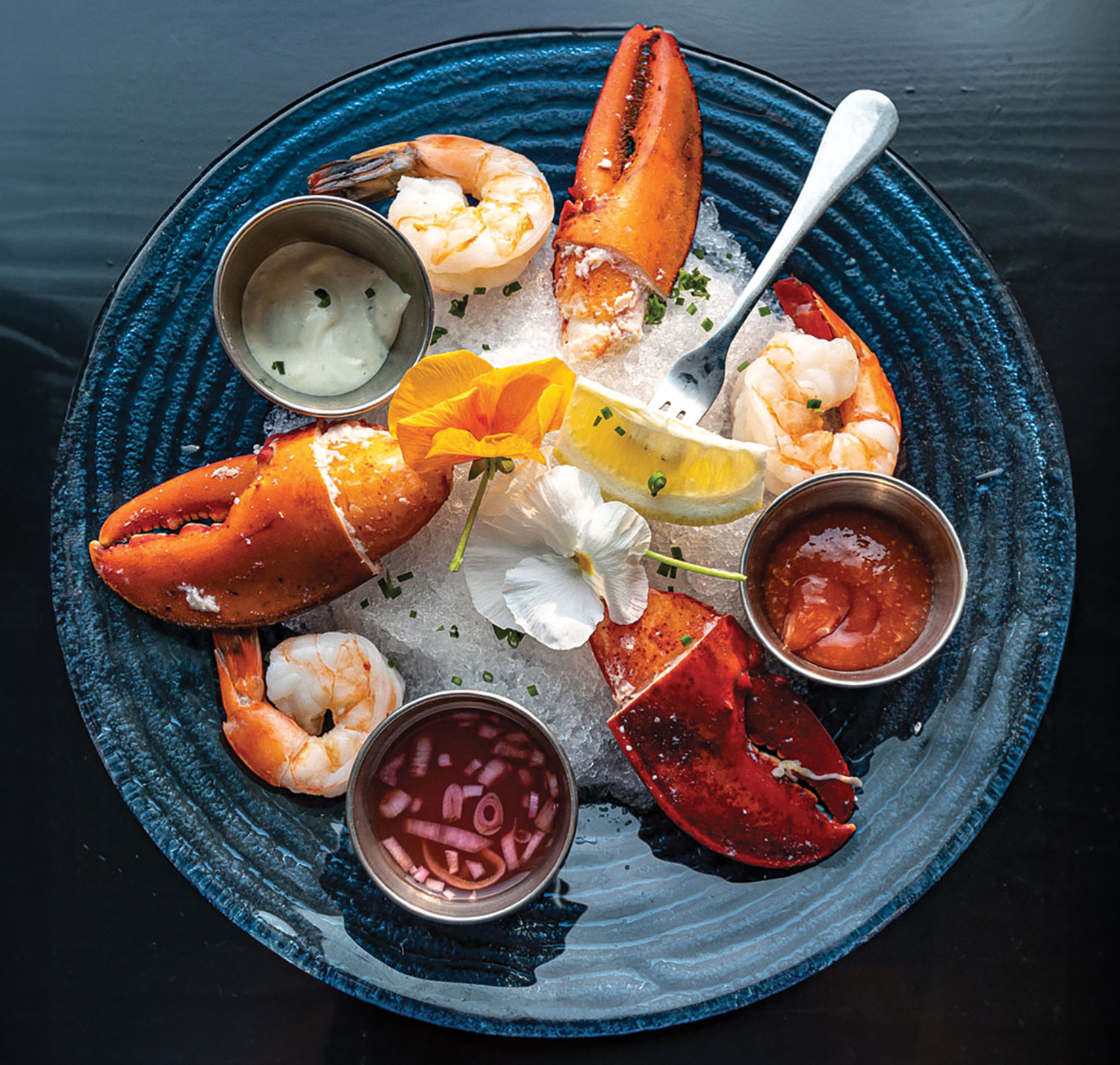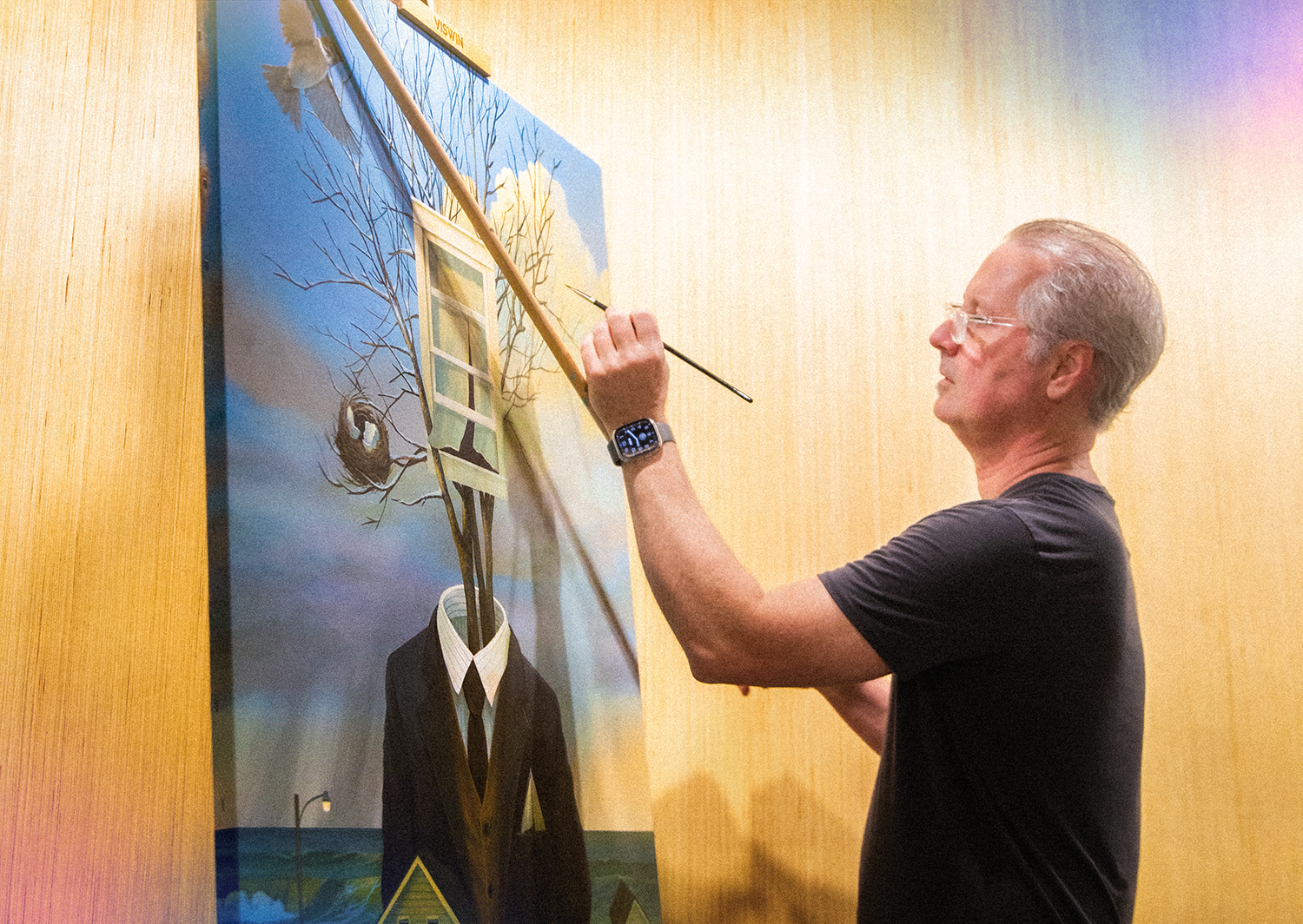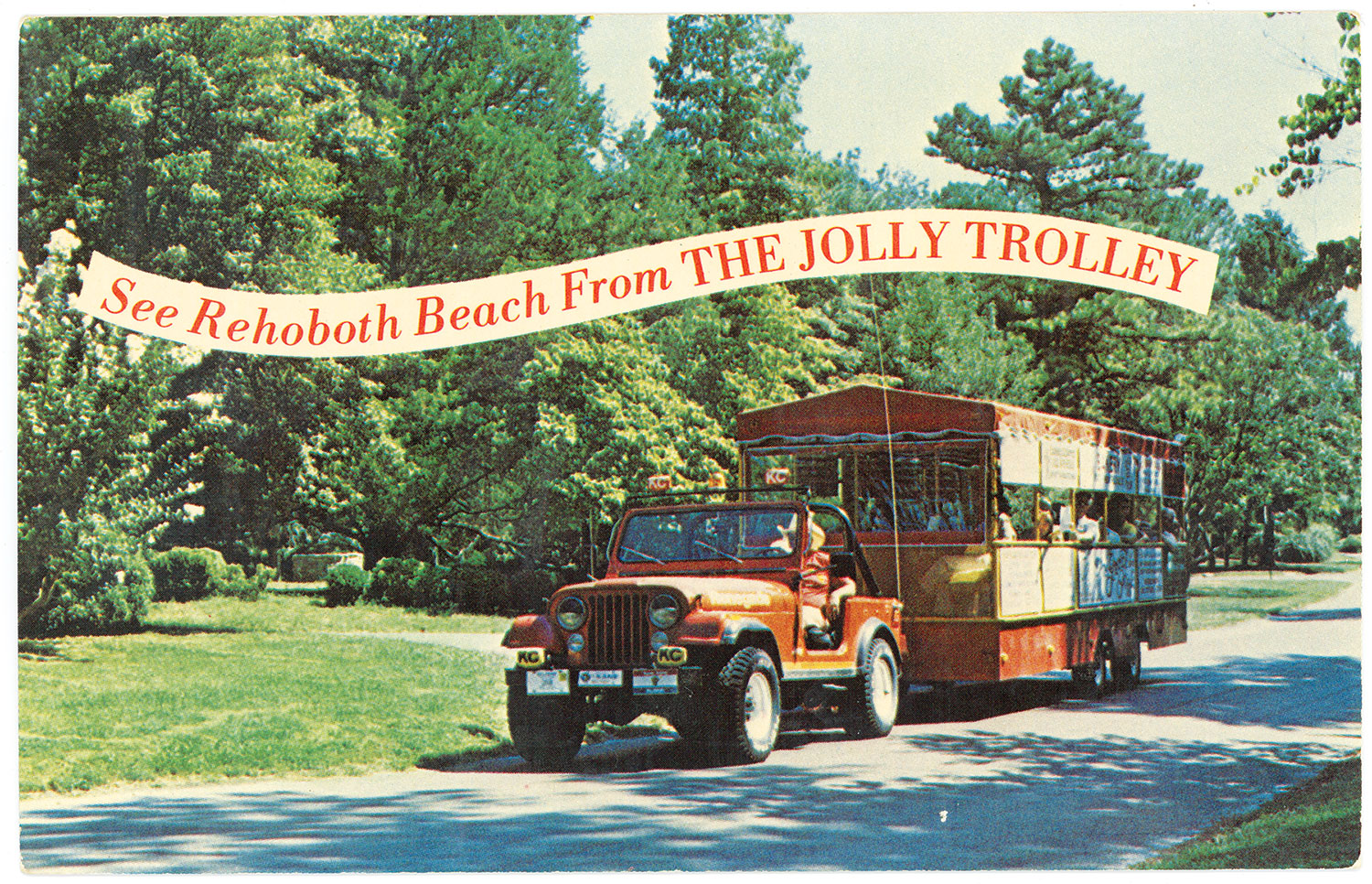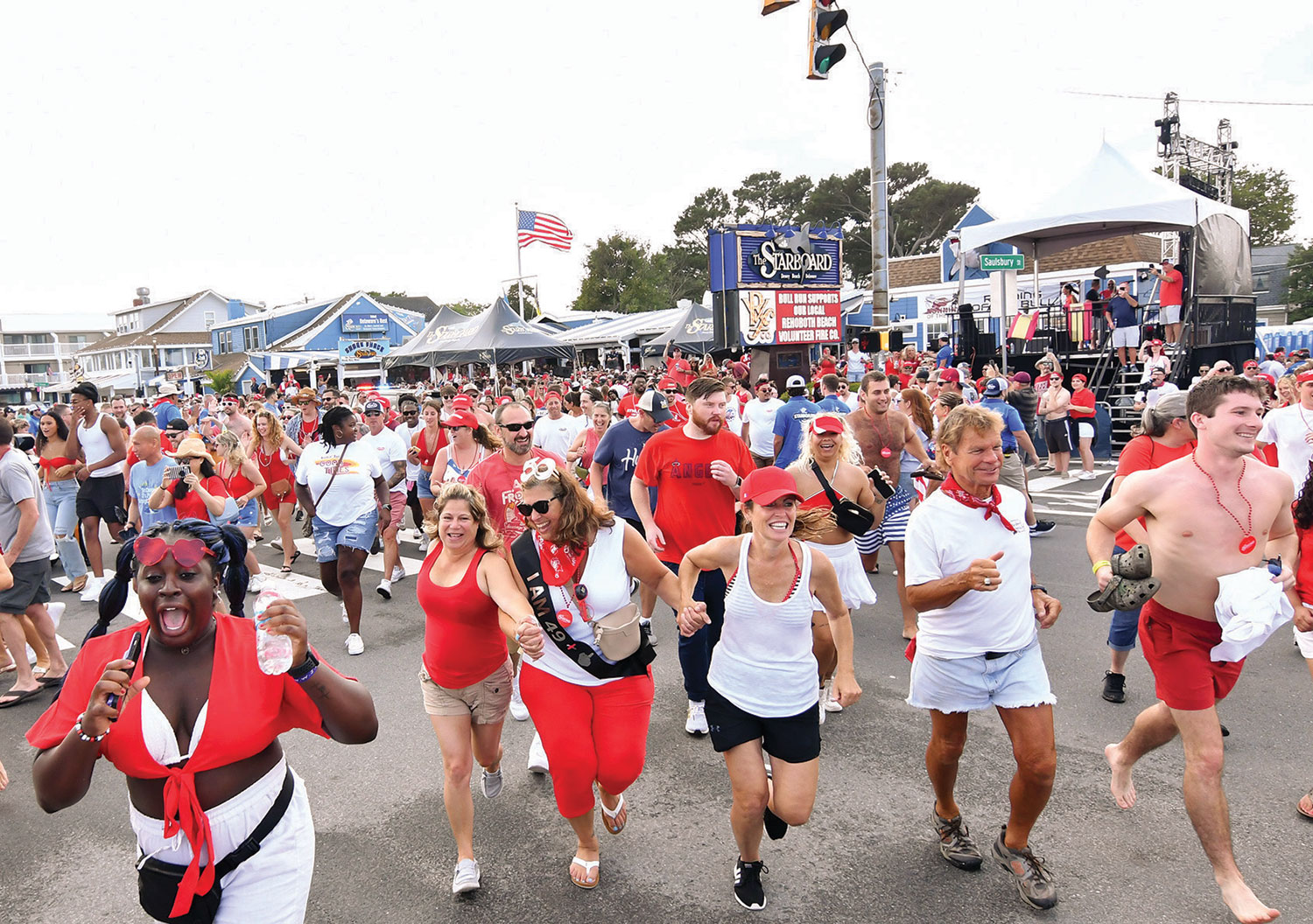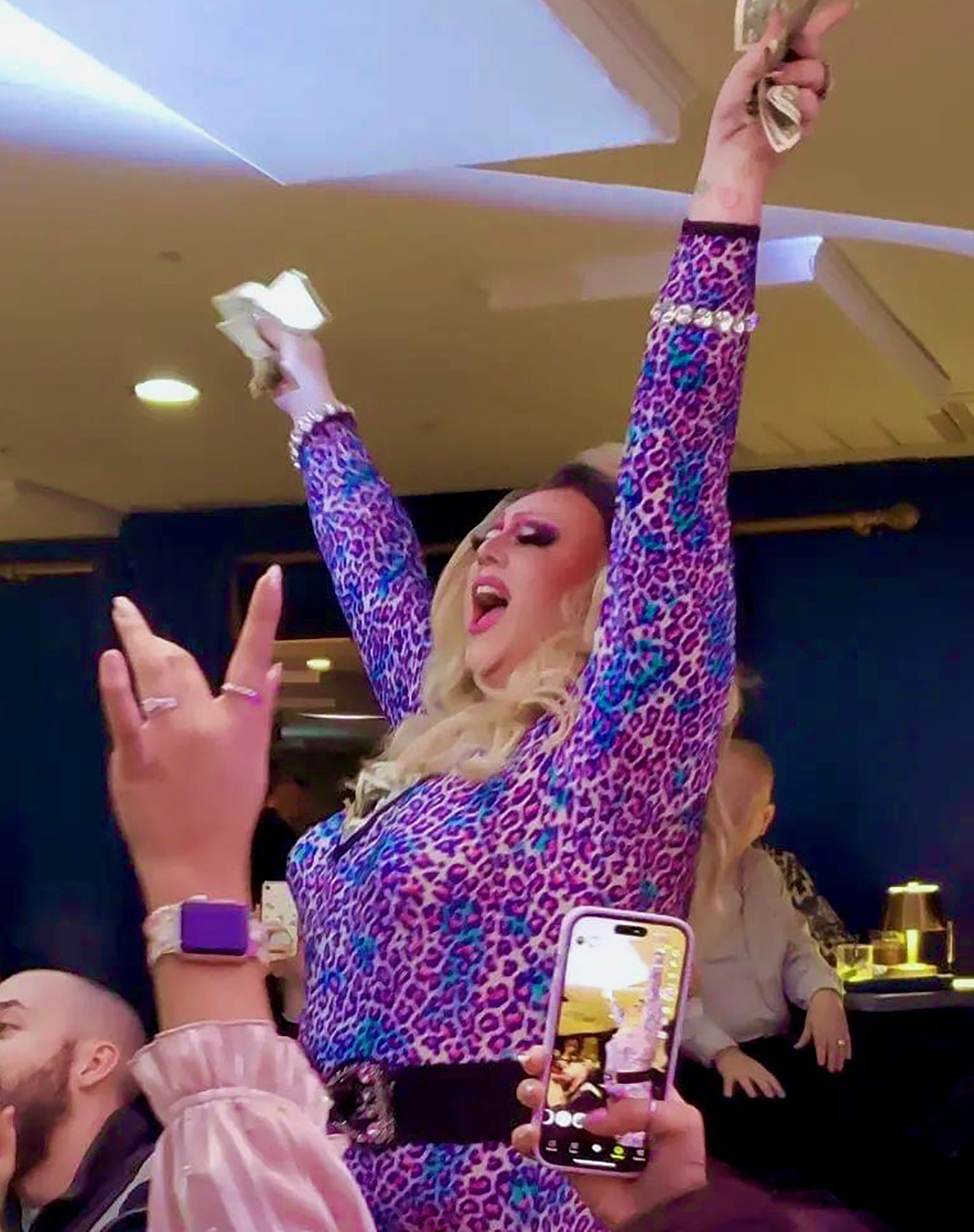From craft brews to freshly baked bread, coastal Delaware has no shortage of artisan products — including saltwater taffy and jams made from local fruit — that make tasty souvenirs. But one local man is making waves with his own blend of Delaware sea salt.
Founded in 2020, Henlopen Sea Salt appeals to locals, tourists and award-winning chefs in Delaware and big city marketplaces.

For instance, Matt Kern, the owner of One Coastal in Fenwick Island and a James Beard-nominated chef, is a fan. “I’ve always used finishing salts, but as soon as I found out I could finish a food with a salt made in my own backyard — that’s the appeal,” the chef says.
Chef Robert Lhulier has used Henlopen Sea Salt since he and his partners opened Snuff Mill Restaurant, Butchery & Wine Bar in Wilmington two years ago. The product represents the restaurant’s desire to promote local ingredients, Lhulier says. The restaurant has given the attractive tins of the salt to VIPs.
Lhulier calls owner Dave Burris a “one-man band and an artisan, at that.” But Burris, a Lewes resident, is also a savvy serial entrepreneur with an eye on growth.
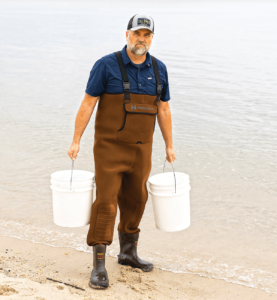
A NATURAL EVOLUTION
Ambition and entrepreneurism run in the Burris family. Indeed, if the name sounds familiar, it’s because you’ve probably spotted it on Burris Logistics’ trucks.
The company’s deep roots in southern Delaware date back to 1925 when Edward Burris and John W. Burris started Burris Express to buy and haul produce. After the company merged with another, the younger Burris started a new food transportation business in 1939. His son, John E. “Jack” Burris, took the helm in the late 1940s.
Not only did John M. Burris, David Burris’s father, join the family business, but he also served in the state House of Representatives.
Following in his ancestors’ enterprising footsteps, David Burris has been a real estate agent and restaurateur. You may remember him from Dave & Skippy’s, a deli in downtown Rehoboth Beach, and R.F. Wheaton’s.
He also started a digital magazine long before they ruled the internet and launched a digital talk radio show — the precursor to the podcast. As for politics, Burris was chief of staff for the Delaware Senate Minority Caucus before his salty hobby became a business.

A BUSINESS CRYSTALIZES
So, why salt? Certainly, it’s a crowded market. Chefs have used Maldon — a sea salt harvested in Maldon, England — to finish their dishes for years. (The salt is added after the food is cooked and plated.) No doubt you’ve also heard of Himalayan sea salt.
The crystalized mineral has become a big business. Consider that the global gourmet salt market is projected to reach $5.97 billion by 2027, according to the “Gourmet Salt Global Market Report 2023.”
But that doesn’t mean that all the salts are the same. “You can easily buy sea salt in a jar harvested by huge corporations — where they push it around with a bulldozer and stack it up high,” Burris says. “But this sea salt is made from waters here.”
To be sure, connoisseurs can discern the differences between salts based on the terroir, a product’s origin. For instance, wine grapes, oysters, coffee, chocolate — and even cannabis — all have distinct flavor profiles depending on the growing conditions.
“I like the idea of a mineral-rich sea salt with no drying agents, no whitening agents — it’s unadulterated seawater.”
You could cook with these gourmet products, but you’d be wasting your money. The texture is part of the appeal. Take, for instance, the crunch of flaky salt on a chocolate caramel. And then there’s the taste. “It certainly will bring out the flavor of any meal, unlike the harshness of corporate kosher salt,” Burris maintains. “It really does make a difference.”
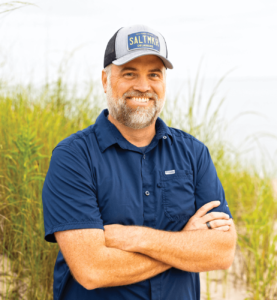
PRACTICE MAKES PERFECT
Appreciating good salt is one thing. Making it is another, as Burris soon learned.
His interest began after watching an online video about salt-making. “If they can do it, I can at least try to do it,” he told himself then. “My first batch was pretty bad. It was fine — not flaky — and gray. You have to figure out a way to make it edible.”
That’s because making salt involves more than boiling seawater until the water evaporates. Time and temperature affect flake production. What started as a lark in 2012 became a mission, and the process was arduous. A gallon of seawater produced about 2-3 ounces of flake, he notes.
Burris began to master the process and gave the salt as gifts. “People started asking for more, and I was making it on demand,” he says. The encouraging response led him to start Henlopen Sea Salt in October 2020. It did not take long for the demand to exceed the supply.
During the COVID pandemic, consumers turned to local foods. “People like to know where their food comes from,” Burris explains. “I like the idea of a mineral-rich sea salt with no drying agents, no whitening agents — it’s unadulterated seawater.”
The salt-maker cranked out as much product as possible, but it wasn’t easy. Burris, who was banking on a business that hadn’t been in the region for more than 100 years, had to get creative with kitchen equipment.
Burris has partnered with Story Hill Farm in Frankford, where he now processes the salt. “It allows us to harvest more than before,” he explains. He not only keeps up with orders, but he also has a stockpile, and instead of processing 10 gallons a batch, he can produce more than 500.
Meanwhile, Henlopen Sea Salt began offering blends, such as a blackening mix, fennel-thyme sea salt and hatch green chile sea salt.
To date, most sales are online at henlopenseasalt.com. However, Burris is increasing his visibility in the retail market. Currently, Henlopen Sea Salt is in 25 retail locations in Delaware, Maryland and Pennsylvania.
Meanwhile, culinary pros are stepping up to the shaker. The flake salt is in more than 20 restaurants and bakeries in the mid-Atlantic, including Oyster Oyster in Washington, D.C., owned by Rob Rubba, a James Beard-award winning chef, and Thacher & Rye in Frederick, Maryland, owned by “Top Chef” alum Bryan Voltaggio.
“I had one chef say my salt tastes like wiping out on a surfboard when they were 7 years old,” Burris says with pride.
And, yes, that’s a good thing.


